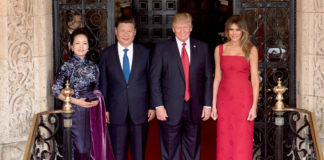The Apocalypse has always featured prominently in International Politics, especially since the advent of the Atomic age. However, far from receding, apocalyptic rhetoric continued unabated and even increased after the Cold War and well into the Twenty First Century. Examples include discourses of climate change, overpopulation, global war on terror, nuclear weapons, and more recently coverage of the Covid-19 Pandemic.
This raises important questions: why do political and civil society actors seek to frame their discourses apocalyptically? What benefits do they and the receiving audiences draw from using this frame? What are the effects or implications of invoking the Apocalypse and what is the role of the symbolic in the use of this frame?
Looking closely at some of these discourses we can immediately identify three reasons why actors seek to (ab)use an apocalyptic frame: first, the choice for apocalyptic frames responds to a strategic move according to which actors seek to arouse and mobilise public support by drawing on passionate and universalising rhetoric.
Second, apocalyptic rhetoric, especially in its secular or enlightened version, has the capacity to increase the perceived urgency of the threat. And third, apocalyptic frames, also in their secular version, are thought to have the capacity to mobilise men and women to change the course of history (mobilise in its active and passive meanings).
But apocalyptic frames may also have serious implications including the possibility that an abuse of the rhetoric may lead to a decrease in the credibility of framers; the danger of fundamentalists pushing harder to see their prophecies fulfilled; and finally, the risk that an amplified apocalyptic rhetoric may help obscure covert political agendas.
An additional negative implication is where apocalyptic rhetoric has the unintended effect of paralysing the audience (assuming this is not an intended purpose of those deploying the rhetoric). Accordingly, although the use of a more secularised apocalyptic frame may appear, on the surface, as less aggressive than a religious frame, such a turn does not completely solve or reduce the negative externalities of apocalyptic rhetoric.
But if apocalyptic frames have these externalities, why are they still so popular (if they truly helped achieve their objectives, nuclear weapons would have long been reduced to zero)? Is it because of the absence of more effective frames? Or is it because those invoking the apocalypse draw on other benefits besides those based on mere strategic rationale?
In reality, on top of a functional or logical explanation, the use of apocalyptic discourses is likely to play a symbolic or psychological role in the minds of the messenger and the audience. In this sense, the use of apocalyptic rhetoric is likely to amount to an expression, or satisfaction, or both, of a buried anxiety originated in past personal or collective traumas.
By invoking the Apocalypse, emitters and recipients may go through a psychological process through which they relive these traumatic experiences, only in most instances figuratively and not quite literally, thus providing some form of unconscious relief. Another possible reading is that the abuse of apocalyptic rhetoric may be an expression and a form of covert desire to satisfy one’s own destructive instinct.
In their 1930s epistolary exchange under the title of ‘Why War?’, Freud wrote to Einstein that “complete suppression of man’s aggressive tendencies is not in issue; what we may try is to divert it into a channel other than that of warfare”. Is it possible, therefore, that those invoking and those indulging in apocalyptic visions are unconsciously directing their death instinct towards a more creative enterprise?
A comprehensive study on the presence of the apocalyptic in twenty first century international politics simultaneously addressing the functional and the symbolic would shed some light into this important subject. Existing research seems to be out of date and only partially relevant. Einstein and Freud’s short attempt in the 1930s should encourage scholars to carry out a similar task.
Ours in an age in which disciplinary boundaries help only maintain the status quo while curtailing the chances of better understanding the world we live in. This is often ignored by mainstream International Relations theorists who narrowly focus on logic and/or structure leaving aside the too often wrongly labelled irrational. This myopic legacy must be overcome if we wish to further our understanding of the causes, origins and effects of human conflict.




























